|
Confirmed keynote speakers
Simon Emmerson
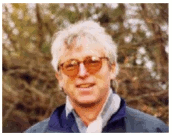
Electroacoustic music composer working mostly with live electronics. He was born in Wolverhampton, UK, on 15 September 1950.
After twenty eight years as Director of the Electroacoustic Music studios at City University, London, since november 2004 Emmerson has been Professor of Music Technology and Innovation at De Montfort University, Leicester. His artistic production now spans thirty five years and includes commissions for the ensembles Intermodulation, Singcircle, Option Band, Lontano and for Jane Manning, Philip Mead, Jane Chapman, amongst many others. He has also acousmatic commissions from the IMEB (Bourges), the GRM (Paris) and the Inventionen Festival (Berlin). In 1985, he was a first prize winner at the Bourges Electroacoustic Awards for his work Time Past IV, for soprano and tape. He contributed to and edited The Language of Electroacoustic Music (Macmillan, 1986) and Music, Electronic Media and Culture (Ashgate, 2000). His book Living Electronic Music was published by Ashgate in 2007, also two solo CDs from Sargasso in 2007 and 2008. He was founder Secretary of EMAS (The Electroacoustic Music Association of Great Britain) in 1979, and served on the Board of Sonic Arts Network from its inception until 2004 and in 2008 was invited to join the Board of Trustees of its successor organization, Sound and Music. In 2009-2010 he was DAAD Edgar Varèse Visiting Professor at the Technische Universität Berlin.
Julio d'Escriván
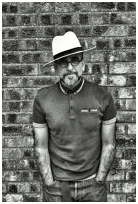
Composer who uses music technology, both for concert music, and in its applications to film, video and new media. He is at present helping set up the Digital Performance Laboratory as part of the University's Cultures of Digital Economies Research Institute. Between 1991 and 2003 he was a successful writer/producer of music for film and TV for Latin America and the Caribbean region, working on national and international advertising campaigns as well as documentaries and feature films and shorts.
Julio has been twice winner of awards at the Bourges International Electroacoustic Music Competition, France, in 1987 and 1989. He has also won awards for his film (Festival de Mérida, 2008) and advertising work (Premios ANDA) in Venezuela as well as mentions in the National Composition prizes there. His music has been performed at numerous music festivals in countries such as The Netherlands (Gaudeamus), Spain (Centro Reina Sofía), The Basque Country (Festival Klem), France, England, Scotland, Ireland, Argentina, Sweden, Mexico, Norway, U.S.A. and Venezuela. His work has been broadcast in America and Europe on stations such as BBC Radio 3, VPRO Amsterdam, Radio Nacional de España, and RAI (Italy) among others.
Nicolas Collins
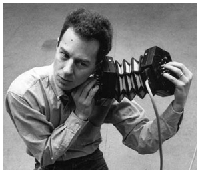
New York born and raised, Nicolas Collins studied composition with Alvin
Lucier at Wesleyan University, worked for many years with David Tudor, and
has collaborated with numerous soloist and ensembles around the world. He
lived most of the 1990s in Europe, where he was Visiting Artistic Director of
Stichting STEIM (Amsterdam), and a DAAD composer-in-residence in Berlin.
Since 1997 he has been editor-in-chief of the Leonardo Music Journal, and since
1999 a Professor in the Department of Sound at the School of the Art Institute of
Chicago. The second edition of his book, Handmade Electronic Music - The Art of
Hardware Hacking, was published by Routledge in 2009. Collins has the dubious
distinction of having played at both CBGBs and the Concertgebouw.
www.nicolascollins.com
Ricardo Nascimento Fabbrini
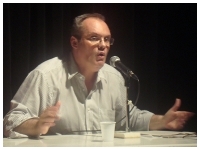
Ricardo Fabbrini holds a PhD on Philosophy from the University of São Paulo-Brazil where he teaches aesthetics. He is the author of O Espaço de Lygia Clark (The Space of Lygya Clark - Atlas, 1994) and A arte depois das vanguardas (Art after the avant-garde - Editora Unicamp, 2002), besides many articles on aesthetics and modern and contemporary art.
ricardofabbrini@usp.br
Samuel Araujo
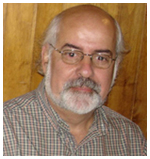
Teaches Ethnomusicology at the Music Department at the Federal University of Rio de Janeiro, and has published works on Music, Politics and Power in journals and books in Brazil and abroad. His recent activities also include curating a series of concerts that focus on bringing together contrasting approaches to Music, such as Campos Sonoros and Arte Fórum. From 2003 he has coordinated participatory action research projects in impoverished communities in Rio de Janeiro, specifically Maré, Salgueiro and Formiga, putting together research groups amongst their inhabitants, focused on documenting and gathering multimedia content portraying the local soundscape and its sonic reference points.
Marcos Branda Lacerda
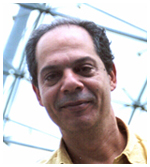
Marcos Branda Lacerda was born in São Paulo in 1954. Having studied composition with Osvaldo Lacerda and Hans Joachim Koellreutter, he completed his Doctorate on Rhythmic Structure in African Music (Fon and Iorub´) in Berlin, and has since been in contact with the composer Nikolaus A. Huber. He currently teaches Music History and Analysis in the Music Department at the University of São Paulo, and as a composer he participates regularly in contemporary music gatherings and seminars in Brazil, having been awarded a composition prize by Funarte, which is the Brazilian National Arts Foundation.
|







